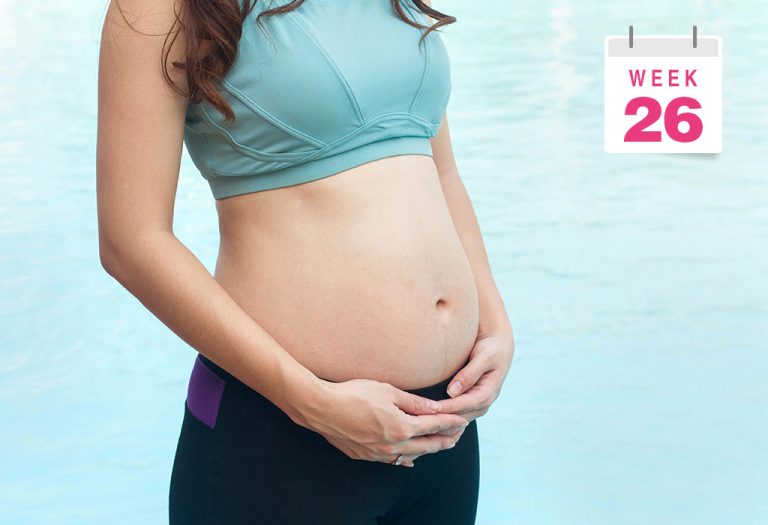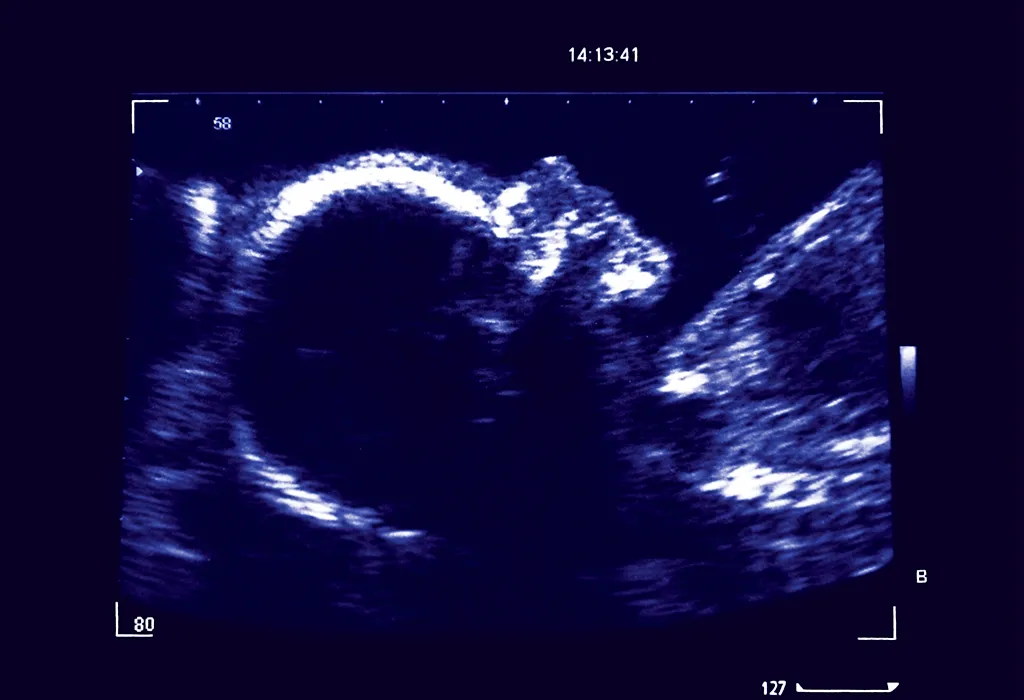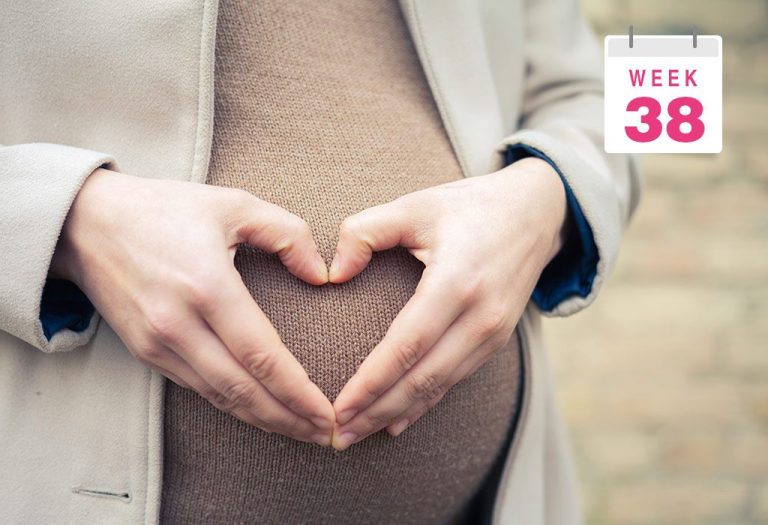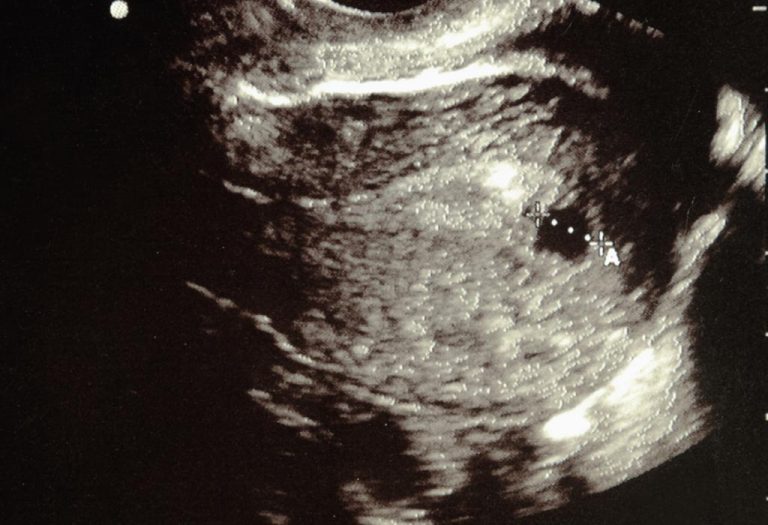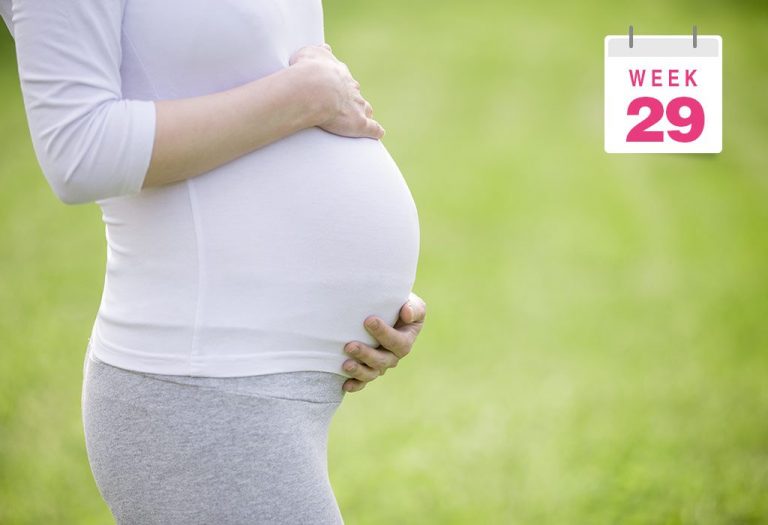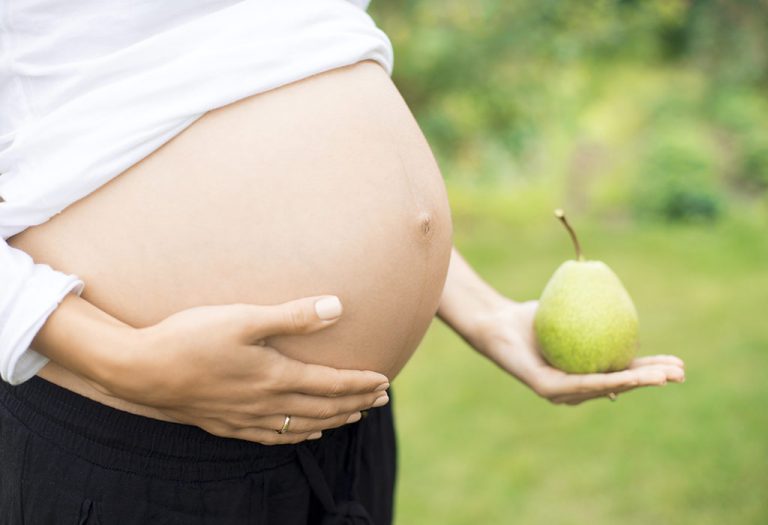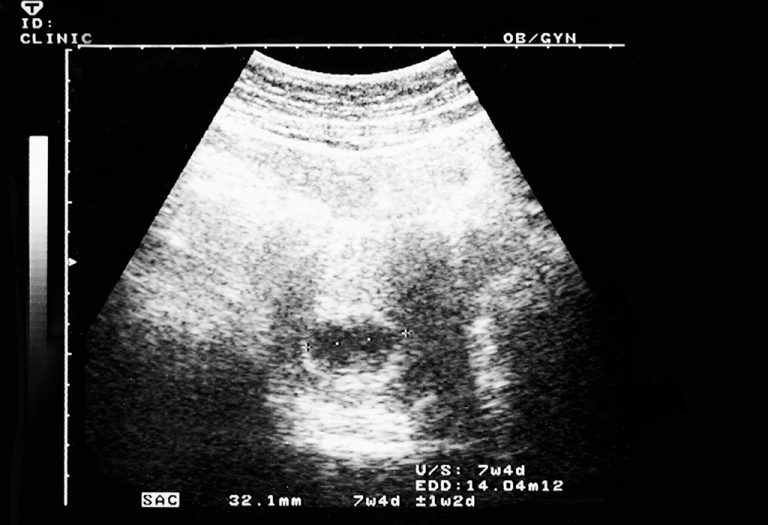26 Weeks Pregnant: Baby Development, Symptoms and Care Tips

An important milestone, the 26th week of pregnancy, is marked by several significant changes in the baby’s development, making it an exciting time for expectant parents. At 26 weeks pregnant, the baby continues to grow rapidly, and many mothers begin to notice new physical and emotional changes in themselves as well. Read on for more information on what to expect at this stage in pregnancy, including tips to stay healthy and comfortable during this crucial phase.
Your Baby’s Growth During Pregnancy Week 26
By the 26th week, the following developments will have taken place in your baby
- Development of the immune system – By this time, the baby’s immune system has developed.
- Development of the sensory organs – During this time, the baby’s eyes and ears have developed and she can hear you and your partner.
- Growing brain activity – At the 26th week, the baby will start responding to noises outside which causes an increase in the activity level. She may even respond to sudden noises with a kick.
What Is the Size of the Baby?
At 26 weeks pregnant, the baby’s size is about 35 cms, and she weighs approximately 900 grams.
Common Body Changes
As your pregnancy advances, the changes in your body continue- some obvious, and others more subtle. Here are some of the body changes that take place during pregnancy.
- The uterus will have grown more than 2 inches above your belly button.
- Some women may experience pain under the ribs because the baby starts kicking and stretching inside the uterus. Changing your position when sitting, standing or lying down can help you get some relief from this pain. You may also experience back pain because of the weight gain.
- You may have gained about 14 to 28 pounds by the 26th week of pregnancy. You should avoid weighing yourself frequently as the bodyweight will keep fluctuating due to water retention.
26 Weeks Pregnant Is How Many Months?
At 26 weeks pregnant, you are in the 6th month of pregnancy, nearing the end of the second trimester. Pregnancy is typically measured in weeks, but dividing those weeks into months can help you better track your progress. With about 14 weeks left until your due date, you’re getting closer to entering the third trimester.
Symptoms of Pregnancy at Week 26
The 26th week of pregnancy can be an uncomfortable phase as the baby starts to grow and your body starts making changes for childbirth. Here are some of the 26 weeks pregnant symptoms.
- Trouble sleeping – As you approach the final day, it may become tougher to rest. You should watch your caffeine intake, consume enough fluids and exercise or take walks, which will help the body rest at night.
- Swelling – You become slightly bloated during this time. Mild swelling around this point is normal, but you should be watchful of any sudden changes in weight. The reason could be a condition named preeclampsia which is marked by a spike in blood pressure.
- Headache – You may experience headaches due to hormonal fluctuations or stress. However, there could be other reasons for the headache like hunger or dehydration, so it important that you take care of your baby and yourself by eating at short intervals and consuming fluids. The headaches could also be because of preeclampsia.
- Forgetfulness or issues in remembering – This is an extremely stressful time for any woman because of all the hormonal changes as well as the rapid changes taking place. The rush of hormones may cause forgetfulness, and you may struggle to remember stuff.
- Braxton Hicks contractions – These contractions are experienced more frequently during the 26th week especially if you are expecting twins. There is no cause for worry as long as they are not steady or severe. In case your contractions have become painful and non-stop then you should consult the doctor immediately.
- Low blood pressure – The blood pressure will be low in the second trimester. However, if your doctor observes too much fluctuation then you may be kept under observation. The reason could be hypertension, which could a sign of preeclampsia or HELLP syndrome. Both of these are complications which require immediate treatment.
- Round ligament pain – This is a jabbing pain which is felt in the groin or lower abdomen.
- Difficulty in breathing – This is caused as the growing baby takes up more space, pushing against your diaphragm.
- Symphysis pubis dysfunction – This is caused when the hormone relaxin, loosens the ligaments which hold the pelvic bones, too early.
- Cramping in the legs – Caused by the increase in weight and the pressure of the baby on the blood vessels, cramps are a symptom which may become more frequent at this stage.
- Pain in the jaw, knees and other joints – As the body prepares for delivery, the joints loosen up, causing aches and pains.
- Swelling or puffiness – This is caused in the different body parts due to the retention of water.
- Formation of gas, bloating and constipation – Like your lungs, your digestive system is cramped too, leading to these issues.
- Acidity and heartburn due to indigestion – Heartburn is caused as the stomach acids flow back into the gut because of the relaxing of valves.
- Itchiness – As the belly grows, the skin on it stretches, causing itchiness and dry skin especially around the belly, thighs and breasts.
- Stretch marks – Also caused by the growing baby, these marks can be reduced by the application of moisturising lotions.
- Insomnia and restlessness – The increase in weight and the size of your belly may make it difficult for you to find a comfortable position to sleep in.
Belly at 26th Week of Pregnancy
By the 26th week of pregnancy, you will have gained some weight. As you touch the 3rd trimester the top of your uterus will be around 2 inches above your belly button. The belly size will keep growing for about 1.5 inches per week for the rest of your pregnancy.
26 Weeks Ultrasound
At 26 weeks you have reached the sixth month of pregnancy. The small changes taking place in the baby during this time are essential for her to develop her reflexes. Babies born prematurely during the 26th week have a 50% rate of survival.
This is also the week when you will get another peek at your baby as an ultrasound is conducted. In addition, glucose screening, blood tests and screening of antibodies will be performed to rule out the chances of gestational diabetes and check the Rh factor. If the result of the glucose screening is positive then the glucose tolerance test is conducted to confirm gestational diabetes.
26 Weeks Pregnant With Twins
At 26 weeks pregnant with twins, you are nearing the third trimester, and your babies are growing rapidly, each weighing around 2 pounds and measuring about 14 inches long. Their lungs, brains, and senses continue to develop, preparing them for life outside the womb. You may notice heightened symptoms such as fatigue, back pain, and Braxton Hicks contractions due to the additional weight and pressure. Regular prenatal checkups are essential at this stage to monitor for potential complications like preterm labour, gestational diabetes, or preeclampsia, which are more common in twin pregnancies. This is also an ideal time to finalize your birth plan, prepare your home, and arrange for extra support for the exciting arrival of your two little ones.
What to Eat
Here are some suggestions for 26th-week pregnancy foods which will ensure a healthy intake of nutrients at this important juncture-
- Eggs and lean meats – These are a source of choline which is good for the brain development of the baby.
- Romaine lettuce – Consumption of romaine lettuce helps maintain a rich supply of vitamins B, folate, potassium, calcium.
- Fruits and vegetables – Eating fresh fruits, vegetables and high-fibre food which are high in vitamin B and fibres.
- Water – Drinking a lot of water makes sure the blood circulation is maintained, and also addresses persistent pregnancy symptoms like constipation.
- Juices – Having a glass of fresh orange juice in your breakfast every day as it is an excellent source of vitamin C.
- Green leafy vegetables – Including a lot of green leafy vegetable in the diet rich in lutein, a natural carotenoid which promotes eye-development.

Remember that eating small meals helps fight heartburn while keeping controlling the blood pressure.
Warning signs: All through your pregnancy you should always consult your doctor in case of the below-mentioned symptoms-
- Pain in the chest
- Reduced foetal movements
- Difficulty during walking
Tips & Care
By this time you will find it inconvenient to move around because of the big belly. Here are a few tips that will help you make the most of this period.
Dos
- It is important that you continue to exercise.
- You should increase the potassium intake because the weight gain will cause stress on your body. Potassium helps in muscle cramps, especially during the night. It is advisable that you join a prenatal class by the 26th-week pregnancy.
- Your baby will rely on your body’s iron content, so it is important to consume foods which are rich in iron.
- Try and get lots of sleep.
- Have sex during pregnancy as it adds to your sense of well-being.
Don’ts
- You should not smoke as smoking will result in a lower birth weight of the baby leading to a greater risk of disabilities in the baby after birth.
- Do not drink alcohol as it could cause Fetal Alcohol Syndrome.
- Do not consume raw uncooked meat and deli meat. These can cause listeriosis, toxoplasmosis and food poisoning.
- Do not eat unpasteurized milk products as they could cause illness and lead to miscarriage.
Checklist for 26 Weeks Pregnant Ladies
At 26 weeks pregnant, you’re well into your second trimester and preparing for the upcoming third. Here’s a checklist to help you stay on track.
1. Schedule Your Glucose Screening Test
Around this time, most healthcare providers recommend a glucose screening test to check for gestational diabetes, a common condition during pregnancy. This test helps ensure your blood sugar levels are within a healthy range. Make sure to book your appointment in advance and follow any pre-test instructions, such as fasting, to ensure accurate results.
2. Monitor Baby’s Movements
Start paying closer attention to your baby’s kicks, rolls, and other movements. Tracking these regularly can help you identify your baby’s activity patterns and detect any changes that might need medical attention. Many expectant moms find it helpful to keep a kick-count chart to ensure their baby is moving as expected each day.
3. Prepare for a Birth Plan
Begin discussing your birth plan with your healthcare provider to outline your preferences for labour and delivery. Whether you’re considering a hospital birth, birthing centre, or home birth, this is the time to think about pain management options, birthing positions, and who you want as part of your support team. Having a plan in place can ease stress as you approach your due date.
4. Invest in Comfortable Maternity Clothes
As your belly grows, comfort becomes key to managing daily activities. Look for maternity clothing made of breathable fabrics that provide adequate support, especially for your back and belly. Don’t forget to include supportive maternity bras and shoes with good arch support to ease pressure on your feet and back.
5. Stay Hydrated and Eat Nutritious Meals
Your growing baby needs essential nutrients to support their development, so focus on eating a balanced diet rich in fruits, vegetables, protein, and whole grains. Include iron-rich foods to combat fatigue and calcium-rich options to strengthen your baby’s growing bones. Staying hydrated is equally important to prevent discomforts like swelling, constipation, and dehydration.
What You Need to Shop For
If you have not yet started shopping then you can start shopping for baby clothes, essentials, and setting up the nursery by the 26th week. You can buy maternity dresses from Bella Mama, which are comfortable with flowy silhouettes. Maternity kurtis are a good bet too, with bright prints which add a festive flair to the whole outfit. Since these are the final days of your pregnancy, you should involve your spouse in the planning as well.
When to Consult the Doctor
Knowing when to consult a doctor during pregnancy is crucial to ensure both your health and your baby’s well-being. Here are key situations when you should consult your doctor:
- Severe or Persistent Abdominal Pain: Any sharp, severe, or persistent pain in the 26 week pregnant bump should be evaluated to rule out complications like preterm labor or placental issues.
- Heavy Bleeding or Spotting: While light spotting can be normal, heavy bleeding accompanied by pain or cramping may indicate a serious issue like miscarriage or placental abruption.
- Sudden Swelling: Significant swelling in the face, hands, or legs, especially if accompanied by headaches or vision changes, could be a sign of preeclampsia.
- Decreased Baby Movements: If you notice a significant decrease in your baby’s usual activity or movements, contact your doctor immediately for an evaluation.
- Severe Headaches: Intense or persistent headaches, especially when paired with blurred vision or dizziness, may be a warning sign of high blood pressure or preeclampsia.
- High Fever: A fever above 100.4°F (38°C) that doesn’t improve with rest or medication could signal an infection and should be addressed promptly.
- Painful or Frequent Urination: Any burning sensation or increased frequency in urination could indicate a urinary tract infection that needs treatment.
- Severe Vomiting or Dehydration: If you are unable to keep food or liquids down, you may be at risk of dehydration and require medical assistance.
- Unusual Vaginal Discharge: Any foul-smelling, green, yellow, or watery discharge may indicate an infection or amniotic fluid leakage.
- Signs of Preterm Labor: Symptoms like regular contractions, lower back pain, pelvic pressure, or water breaking before 37 weeks should be addressed immediately.
FAQs
1. Can I travel at 26 weeks pregnant?
In most cases, it’s safe to travel at 26 weeks pregnant, but it’s essential to consult with your healthcare provider first. They will evaluate your health and any potential risks, such as preterm labour or complications before you make any travel plans. Additionally, if travelling by plane, consider moving around regularly and staying hydrated to reduce swelling and improve circulation.
2. Can I experience changes in my vision at 26 weeks pregnant?
Yes, some women experience blurry vision or sensitivity to light at 26 weeks pregnant, a condition often caused by hormonal changes affecting the eyes. However, if you notice sudden or severe vision changes, such as spots or loss of vision, this could be a sign of pregnancy-related complications like preeclampsia, and you should consult your doctor immediately.
3. Is it normal to have a metallic taste at 26 weeks pregnant?
A metallic taste in the mouth, known as dysgeusia, is an uncommon symptom that some pregnant women experience due to hormonal fluctuations. It is usually harmless and may go away after the second trimester. If it persists, eating more flavorful foods or chewing gum can help mask the taste.
The 26th week of pregnancy is a time when there are a lot of crucial developments taking place. It is important that you are informed and proceed through the remaining journey with confidence.
References/Resources:
1. FAQs: How Your Fetus Grows During Pregnancy; American College of Obstetricians and Gynecologists; https://www.acog.org/womens-health/faqs/how-your-fetus-grows-during-pregnancy
2. Fetal development: The 2nd trimester; Mayo Clinic; https://www.mayoclinic.org/healthy-lifestyle/pregnancy-week-by-week/in-depth/fetal-development/art-20046151
3. Fetal Development; Cleveland Clinic; https://my.clevelandclinic.org/health/articles/7247-fetal-development-stages-of-growth
4. Glucose screening tests during pregnancy; Mount Sinai; https://www.mountsinai.org/health-library/tests/glucose-screening-tests-during-pregnancy
5. 26 Weeks Pregnant; American Pregnancy Association; https://americanpregnancy.org/healthy-pregnancy/week-by-week/26-weeks-pregnant/
6. Ultrasound in Pregnancy; Cleveland Clinic; https://my.clevelandclinic.org/health/diagnostics/9704-ultrasound-in-pregnancy
7. Fatigue During Pregnancy; American Pregnancy Association; https://americanpregnancy.org/healthy-pregnancy/pregnancy-concerns/fatigue-during-pregnancy/
Also Read:
25 Weeks Pregnant
Body Changes at 27 Weeks Pregnant
Symptoms of 28 Week Pregnant
Twenty Nine Week Pregnancy Symptoms
Was This Article Helpful?
Parenting is a huge responsibility, for you as a caregiver, but also for us as a parenting content platform. We understand that and take our responsibility of creating credible content seriously. FirstCry Parenting articles are written and published only after extensive research using factually sound references to deliver quality content that is accurate, validated by experts, and completely reliable. To understand how we go about creating content that is credible, read our editorial policy here.






